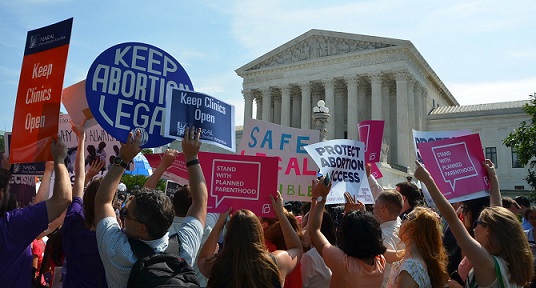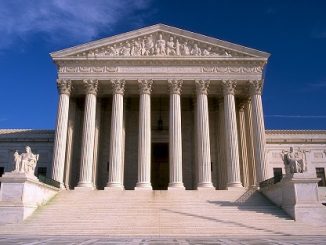
A Texas doctor who admitted to breaking the state’s new abortion legislation has been sued, in what could be a test of how lawful the mandate is.
Writing for the Washington Post, Alan Braid said he had carried out a termination on a woman who was in the early stages of her pregnancy but “beyond the state’s new limit”.
Former lawyers in Arkansas and Illinois filed lawsuits against him on Monday.
The new legislation bans abortions from as early as six weeks into a pregnancy.
The law came into effect on 1 September, giving any individual – from Texas or elsewhere – the right to sue doctors who perform an abortion past the six-week point. However it does not allow the women who get the procedure to be sued.
The law bans terminations after the detection of what anti-abortion campaigners call a foetal heartbeat, something medical authorities say is misleading.
Dr Braid, who has been practising medicine for nearly 50 years, wrote in an opinion column published on the weekend: “I acted because I had a duty of care to this patient, as I do for all patients, and because she has a fundamental right to receive this care.
“I fully understood that there could be legal consequences – but I wanted to make sure that Texas didn’t get away with its bid to prevent this blatantly unconstitutional law from being tested,” he wrote.
Oscar Stilley, a former lawyer in Arkansas who is serving a 15-year federal conviction for tax fraud in home confinement, said he had decided to file the lawsuit after reading Dr Braid’s opinion piece. He said he was not opposed to abortion but sued to force a court to test the legality of the new legislation.
In an interview with Reuters news agency, he said the new restrictions violate women’s constitutional rights.
A second lawsuit was filed by Felipe Gomez, from Illinois, who described himself as a “Pro Choice Plaintiff” in the suit and claimed the law was “illegal as written and as applied”.
Dr Braid has not commented on the lawsuits, the first known legal challenges to the law which is one of the most restrictive in the country.
The “Heartbeat Act” was signed into law by Republican Governor Greg Abbott in May. It took effect after the Supreme Court did not respond to an emergency appeal by abortion providers.
Earlier this month, the US justice department filed an emergency motion, seeking to block enforcement of the law while it pursues legal action.
Abortion providers say the law is at odds with the 1973 Supreme Court decision in Roe v Wade, under which US women have the right to an abortion until a foetus is viable – that is, able to survive outside the womb. This is usually between 22 and 24 weeks into a pregnancy.
The law enforces its ban with an uncommon approach: it empowers any private citizen to sue anyone who “aids and abets” an illegal abortion.
People who successfully sue under the Texas law will be awarded at least $10,000 (£7,200), in addition to any legal fees incurred.
Critics, like the American Civil Liberties Union, have said this leaves the responsibility for enforcing it on individuals, rather than local or state officials, and could give rise to abortion “bounty hunters”.
Source: bbc.co.uk






Be the first to comment